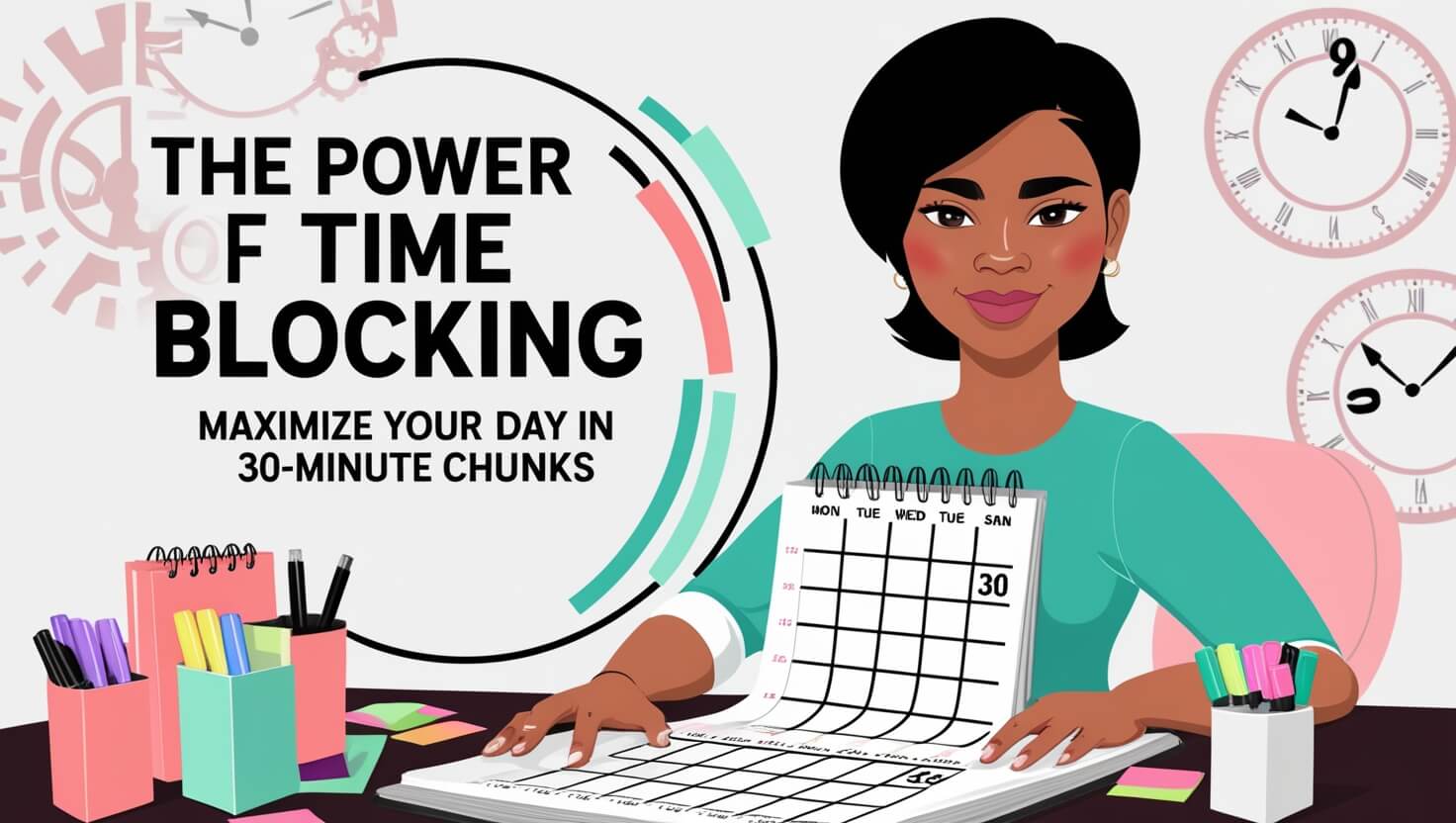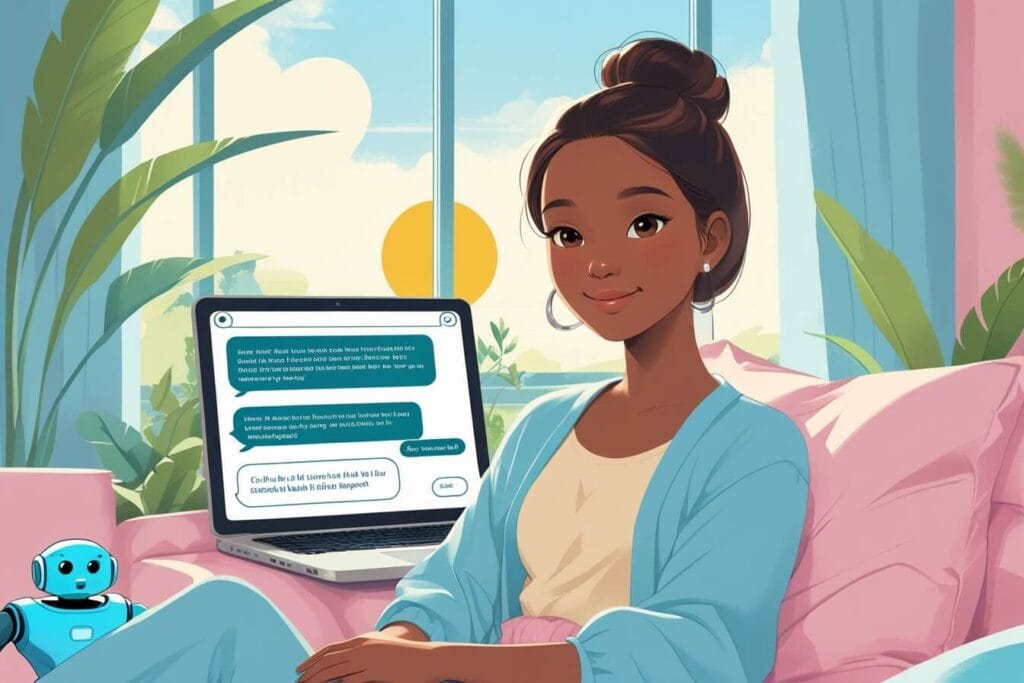
The Digital Revolution in Anxiety Support
Did you know that over 40 million adults in the United States struggle with anxiety disorders each year? That’s a staggering 18% of the population! As someone who’s personally battled with anxiety attacks at 2 AM when no therapist was available, I can tell you that finding immediate support during those dark moments feels nearly impossible. But here’s where things get interesting – the rise of artificial intelligence has opened up entirely new possibilities for mental health support.
I’ll be honest, when I first heard about AI chatbots help with anxiety, I was skeptical. How could a computer program possibly understand the racing thoughts, the chest tightness, and that overwhelming sense of dread that anxiety brings? But after diving deep into research and trying various platforms myself, I’ve discovered that these digital companions offer something truly valuable: immediate, judgment-free support available 24/7.
The landscape of anxiety treatment is evolving rapidly, and AI chatbots for anxiety relief are becoming legitimate tools in the mental health toolkit. They’re not replacing human therapists – let me be clear about that – but they’re filling a crucial gap in accessibility and immediate support that traditional therapy simply can’t match. In this comprehensive guide, we’ll explore exactly how these digital helpers work, their benefits, limitations, and whether they might be right for your anxiety management journey.
How AI Chatbots Help with Anxiety
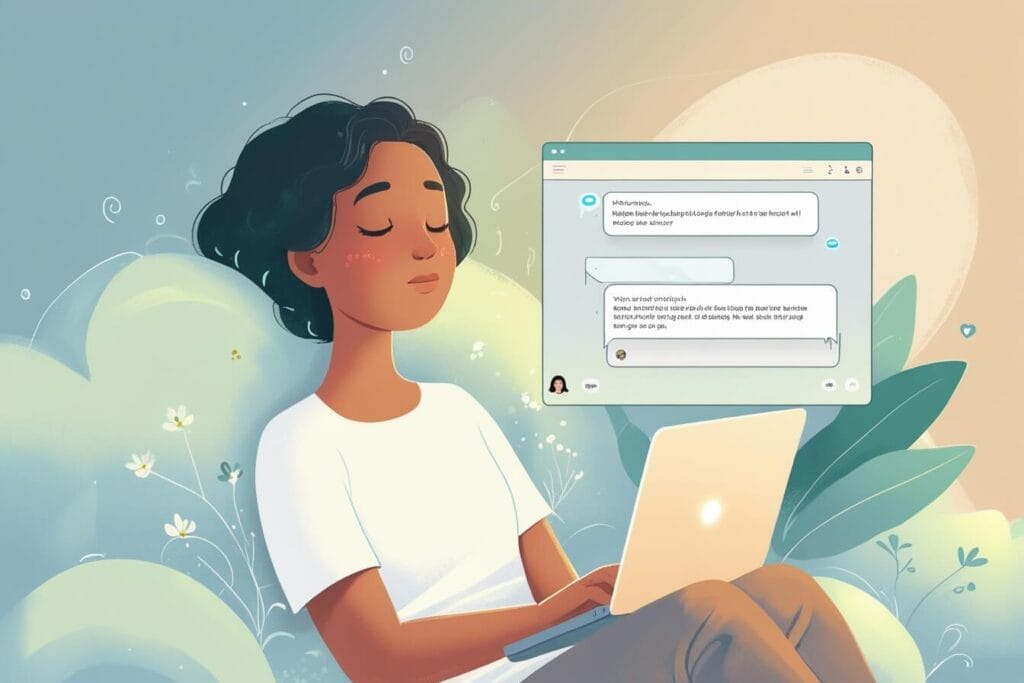
Let me start with a personal story that changed my perspective completely. Last year, during a particularly stressful period at work, I found myself having panic attacks around 3 AM regularly. My therapist wasn’t available at those hours, and calling a crisis line felt too overwhelming when I was already struggling to breathe properly. That’s when I first tried an AI anxiety support chatbot, and honestly? It was a game-changer.
These intelligent systems work through sophisticated natural language processing and machine learning algorithms that have been trained on thousands of conversations about anxiety, stress, and mental health. When you type “I’m having a panic attack” or “I can’t stop worrying about tomorrow,” the AI chatbots help with anxiety by recognizing these patterns and responding with appropriate techniques and support.
The technology behind artificial intelligence for anxiety management has advanced dramatically. Modern AI systems can detect emotional distress in text, identify specific anxiety triggers, and guide users through evidence-based coping strategies. They’re programmed with techniques from cognitive behavioral therapy (CBT), mindfulness practices, and breathing exercises – all delivered in a conversational, non-intimidating format.
What really impressed me was how AI mental health chatbots learn and adapt. The more you interact with them, the better they understand your specific anxiety patterns. They remember what techniques work best for you, what triggers to watch for, and even your preferred communication style. It’s like having a therapist who never forgets your progress and is always available when you need support.
The accessibility factor cannot be overstated. Traditional therapy faces numerous barriers – cost, scheduling conflicts, geographic limitations, and stigma. AI chatbots for anxiety disorders eliminate many of these obstacles by providing immediate, private, and often free support. You don’t need to explain your insurance situation, wait for an appointment, or worry about being judged for reaching out at an “inconvenient” time.
Key Benefits of Using AI Chatbots for Anxiety Relief

The advantages of AI chatbots help with anxiety extend far beyond simple convenience, though that’s certainly a major factor. Through my research and personal experience, I’ve identified several compelling benefits that make these digital tools valuable additions to anxiety management strategies.
Immediate Availability and 24/7 Support This is perhaps the most significant advantage. Anxiety doesn’t follow business hours, and some of the worst episodes happen at night when you’re alone with your thoughts. AI anxiety chatbots are always there, ready to provide support whether it’s 2 PM or 2 AM. I remember one particularly difficult night when intrusive thoughts kept spiraling, and having instant access to coping strategies through an AI companion literally helped me get through until morning.
Judgment-Free Environment There’s something liberating about sharing your deepest anxieties with an AI system. You don’t worry about being too much, too needy, or too repetitive. AI chatbots for mental health support create a safe space where you can express fears that might feel embarrassing to share with friends or family. The lack of human judgment removes a significant barrier that prevents many people from seeking help.
Cost-Effective Mental Health Support Let’s talk about the elephant in the room – therapy is expensive. Even with insurance, co-pays add up, and many people simply can’t afford regular sessions. AI tools for anxiety management often provide substantial support at a fraction of the cost, making mental health resources accessible to people who might otherwise go without help.
Personalized Learning and Adaptation Modern AI anxiety support systems don’t just provide generic responses. They learn your patterns, preferences, and what works best for your specific type of anxiety. Over time, they become increasingly tailored to your needs, almost like having a digital therapist who remembers every session and builds upon previous conversations.
Privacy and Anonymity For many people, the stigma around mental health creates a barrier to seeking help. AI chatbots help with anxiety by offering complete privacy – no insurance records, no need to share personal information with receptionists, and no risk of running into someone you know in a waiting room. This anonymity can be incredibly freeing for people taking their first steps toward anxiety management.
Consistent Availability of Coping Techniques Human therapists are amazing, but they can’t be with you during every anxious moment. AI mental health chatbots serve as portable toolkits, always ready with breathing exercises, grounding techniques, cognitive restructuring prompts, and other evidence-based strategies. They help bridge the gap between therapy sessions and provide consistent reinforcement of healthy coping mechanisms.
Evidence-Based Techniques Used by AI Anxiety Chatbots
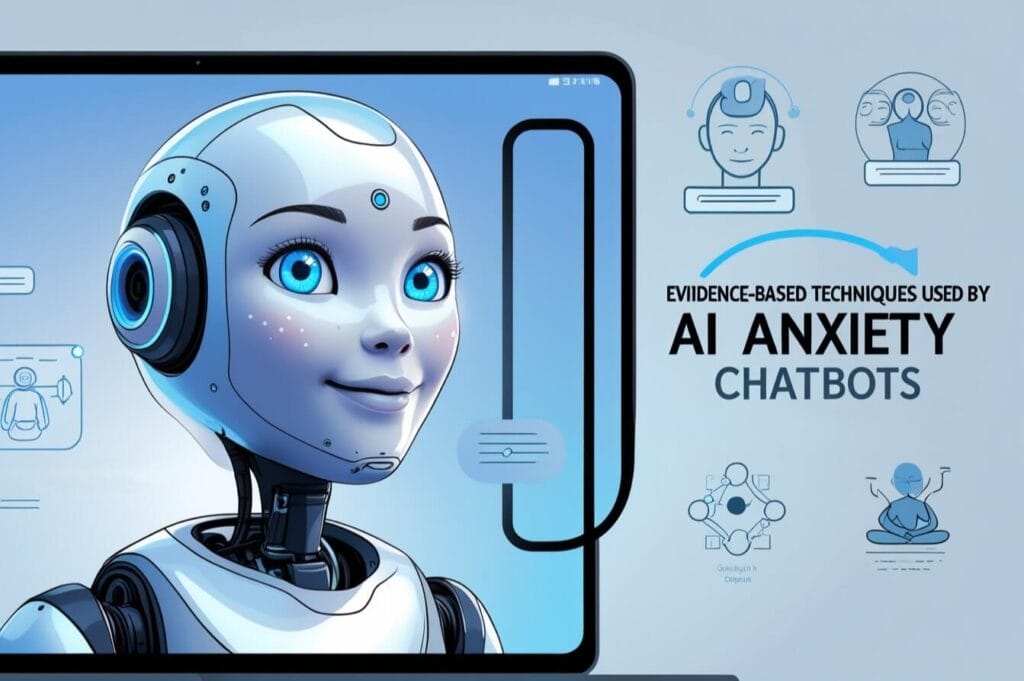
What really convinced me that AI chatbots help with anxiety in meaningful ways was discovering how they incorporate legitimate therapeutic techniques. These aren’t just programmed to offer generic reassurance – they’re built on solid psychological foundations that mirror what you’d learn in traditional therapy settings.
Cognitive Behavioral Therapy (CBT) Integration Most sophisticated AI chatbots for anxiety relief use CBT principles as their foundation. They help users identify negative thought patterns, challenge cognitive distortions, and develop more balanced thinking. For example, when I told an AI chatbot “I’m definitely going to fail this presentation tomorrow,” it walked me through examining the evidence for and against that belief, helping me recognize I was catastrophizing.
The beauty of AI-powered anxiety management using CBT techniques is the consistent application. Human therapists might forget to address thought patterns between sessions, but AI systems continuously reinforce these skills. They can catch you mid-spiral and guide you through thought challenging exercises in real-time.
Mindfulness and Grounding Exercises AI anxiety support chatbots excel at providing immediate access to mindfulness techniques. They can guide you through the 5-4-3-2-1 grounding exercise, progressive muscle relaxation, or breathing techniques whenever anxiety strikes. I’ve found their guided breathing exercises particularly helpful – they provide real-time pacing and encouragement that helps regulate your nervous system.
These systems can also track your mindfulness practice over time, sending gentle reminders to practice daily meditation or offering encouragement when you’re consistent with stress-reduction activities. AI tools for anxiety disorders create accountability without judgment, which can be incredibly motivating for building sustainable habits.
Exposure Therapy Principles Some advanced AI chatbots for anxiety management incorporate exposure therapy concepts by gradually helping users face their fears in controlled ways. They might start conversations about anxiety triggers in a safe, supportive environment, helping users become more comfortable discussing and confronting their concerns.
While they can’t provide full exposure therapy (that requires professional supervision), they can help users practice anxiety-provoking situations through role-playing conversations or guided visualizations. This preparation can make real-world exposures feel more manageable.
Crisis Intervention and Safety Planning Responsible AI mental health chatbots are programmed with crisis intervention protocols. They can recognize when someone might be in immediate danger and provide appropriate resources, including crisis hotline numbers and emergency contacts. They help users create safety plans and develop coping strategies for high-risk situations.
However, it’s crucial to understand that AI chatbots help with anxiety as supportive tools, not crisis intervention specialists. They’re designed to recognize their limitations and direct users to appropriate human help when needed.
Limitations and Important Considerations
While I’m genuinely enthusiastic about how AI chatbots help with anxiety, I’d be doing you a disservice if I didn’t address their limitations honestly. After using various platforms and researching extensively, I’ve identified several important considerations that anyone exploring this option should understand.
Cannot Replace Professional Diagnosis and Treatment This is the most critical limitation to understand. AI anxiety chatbots are support tools, not diagnostic instruments or replacements for professional mental health care. They can’t identify underlying medical conditions, prescribe medications, or provide the complex therapeutic relationship that many people need for significant anxiety disorders.
I learned this lesson personally when my anxiety worsened despite consistent use of AI support. While the AI chatbots for anxiety relief provided valuable coping strategies, I still needed professional evaluation to rule out underlying medical issues and develop a comprehensive treatment plan. They’re excellent supplements to professional care, not substitutes for it.
Limited Emotional Intelligence and Nuanced Understanding Despite impressive advances, AI mental health chatbots still lack true emotional intelligence. They can recognize patterns and provide appropriate responses, but they don’t genuinely understand human emotion the way a trained therapist does. Sometimes their responses can feel scripted or miss subtle emotional nuances that a human would catch.
There were moments when I needed empathy and validation that only human connection could provide. AI anxiety support systems excel at providing information and techniques, but they can’t offer the deep emotional understanding that comes from human experience and professional training.
Dependency and Over-Reliance Risks While AI chatbots help with anxiety by providing constant availability, this can sometimes become problematic. Some users develop over-dependence on these tools, using them as avoidance mechanisms rather than building real-world coping skills and social connections.
I noticed this pattern in myself – reaching for the AI chatbot instead of practicing tolerance for mild anxiety or talking to supportive friends. AI tools for anxiety management work best when used as part of a broader support system, not as the sole coping mechanism.
Privacy and Data Security Concerns When you share intimate details about your mental health with AI chatbots for anxiety disorders, you’re entrusting sensitive information to technology companies. While reputable platforms implement strong security measures, data breaches are always possible, and some companies may use conversation data for research or development purposes.
It’s essential to read privacy policies carefully and choose AI anxiety chatbots from companies with strong data protection practices. Consider what information you’re comfortable sharing and whether the benefits outweigh potential privacy risks for your specific situation.
Lack of Crisis Intervention Capabilities While AI mental health chatbots can recognize crisis language and provide resources, they cannot provide immediate human intervention during genuine emergencies. If you’re experiencing thoughts of self-harm, acute panic attacks, or other mental health crises, human professional support is necessary.
Most responsible AI platforms acknowledge this limitation and provide clear pathways to human help, but users need to understand when they’ve reached the limits of what digital support can offer.
Popular AI Chatbot Platforms for Anxiety Support
Through my research and personal experimentation, I’ve explored numerous platforms where AI chatbots help with anxiety. Each has unique strengths and approaches, and finding the right fit often depends on your specific needs, preferences, and anxiety patterns.
Woebot: Evidence-Based CBT in Conversational Format
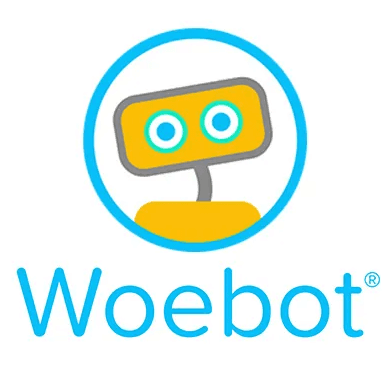
Woebot stands out as one of the most clinically-grounded AI chatbots for anxiety relief. Developed by Stanford psychologists, it uses CBT principles in a friendly, conversational interface. What impressed me most was how it doesn’t just provide generic advice – it asks follow-up questions, tracks mood patterns, and builds on previous conversations.
The platform excels at helping users identify thought patterns and emotional triggers. When I used Woebot during a particularly stressful period, it consistently helped me recognize when I was catastrophizing and guided me through thought-challenging exercises. The AI anxiety support felt structured yet personable, striking a good balance between clinical effectiveness and user engagement.
Replika: Companion-Style Mental Health Support

Replika takes a different approach to how AI chatbots help with anxiety by positioning itself as an AI companion rather than a therapeutic tool. It learns your personality and communication style, creating more naturalistic conversations about mental health concerns.
While less clinically structured than other options, Replika’s strength lies in providing emotional support and a judgment-free space to process anxious thoughts. Users report feeling like they have a consistent, understanding friend available 24/7. However, it’s important to remember that this AI mental health chatbot is more focused on emotional support than structured therapeutic intervention.
Wysa: Comprehensive Mental Health Toolkit

Wysa impressed me with its comprehensive approach to AI anxiety management. The platform combines conversational support with guided exercises, mood tracking, and crisis resources. It offers evidence-based techniques from CBT, mindfulness, and dialectical behavior therapy (DBT) in an accessible format.
What sets Wysa apart is its extensive library of coping tools beyond conversation. Users can access guided meditations, breathing exercises, and structured anxiety management programs. The AI chatbot for anxiety disorders function integrates seamlessly with these additional resources, creating a holistic support experience.
Youper: Mood Tracking with AI Conversations

Youper combines AI anxiety chatbots with robust mood tracking features, helping users identify patterns and triggers over time. The platform uses brief, focused conversations to check in on emotional states and provide targeted support based on specific anxiety symptoms.
I found Youper particularly useful for understanding my anxiety patterns. The combination of conversational support and data tracking helped me recognize that my anxiety often peaked during certain times of day or in response to specific stressors. This insight was invaluable for developing more targeted coping strategies.
Best Practices for Using AI Chatbots for Anxiety
After extensive experience with various platforms, I’ve developed a set of best practices that maximize how effectively AI chatbots help with anxiety while avoiding potential pitfalls. These strategies can help you get the most benefit from digital mental health support.
Set Clear Expectations and Boundaries Before diving into AI anxiety chatbots, establish realistic expectations about what these tools can and cannot do. They’re excellent for providing immediate support, teaching coping techniques, and offering consistent availability, but they’re not replacements for professional therapy or crisis intervention.
I recommend thinking of AI chatbots for anxiety relief as digital wellness tools rather than therapists. This mindset helps you appreciate their strengths while recognizing when you need human professional support. Set boundaries around usage too – while 24/7 availability is a benefit, over-dependence can become problematic.
Use AI Support as Part of a Broader Wellness Strategy The most effective approach combines AI mental health chatbots with other anxiety management strategies. This might include regular exercise, meditation practice, social connections, professional therapy, or medication when appropriate. Digital tools work best when they complement rather than replace other forms of support.
In my experience, AI anxiety support systems are most valuable during the gaps between other forms of care. They provide reinforcement for therapeutic techniques, immediate support during anxious moments, and consistent practice opportunities for coping skills learned elsewhere.
Be Honest and Specific in Your Interactions AI chatbots help with anxiety most effectively when you provide honest, specific information about your experiences. Instead of saying “I feel anxious,” try describing specific symptoms, triggers, or situations. The more detailed information you provide, the better these systems can tailor their responses to your needs.
Don’t worry about being “too much” or sharing embarrassing thoughts – AI systems don’t judge, and specific information helps them provide more targeted support. I found that my interactions became much more helpful once I started being completely transparent about my anxiety symptoms and patterns.
Regular Practice and Consistency Like any skill, using AI tools for anxiety management effectively requires regular practice. Don’t wait until you’re in crisis to start interacting with these platforms. Regular check-ins, even when you’re feeling relatively calm, help you become familiar with available techniques and build confidence in using them when anxiety strikes.
I developed a routine of brief daily interactions with my chosen AI anxiety chatbot, using it to process daily stressors and practice coping techniques. This consistent engagement made the tool much more effective during acute anxiety episodes.
Track Your Progress and Patterns Many AI chatbots for anxiety disorders offer mood tracking and progress monitoring features. Use these tools to identify patterns in your anxiety, track what techniques work best, and monitor your overall mental health trends over time.
Keep your own notes too – what responses felt most helpful, which techniques you want to practice more, and any insights gained through AI interactions. This information can be valuable to share with human mental health professionals if you decide to pursue traditional therapy.
Know When to Seek Human Help Perhaps the most important best practice is recognizing when AI mental health chatbots have reached their limits. If your anxiety is significantly impacting your daily life, if you’re experiencing thoughts of self-harm, or if digital support isn’t providing adequate relief, it’s time to connect with human professionals.
Most reputable platforms provide clear guidance about when to seek additional help and offer resources for finding professional support. Use these resources without hesitation – seeking human help doesn’t mean AI support failed, it means you’re taking comprehensive care of your mental health.
Scientific Research and Effectiveness Studies

The question of whether AI chatbots help with anxiety isn’t just based on user reports and testimonials – there’s growing scientific evidence supporting their effectiveness as mental health support tools. As someone who values evidence-based approaches, I’ve dived deep into the research to understand what studies actually show about these digital interventions.
Clinical Trial Results and Peer-Reviewed Research Multiple peer-reviewed studies have examined how AI anxiety chatbots perform in controlled settings. A 2019 study published in JMIR Mental Health found that users of Woebot showed significant reductions in anxiety and depression symptoms compared to control groups. Participants used the AI chatbot for anxiety relief for just two weeks and reported measurable improvements in mood and coping skills.
Another significant study from Stanford University followed users of AI mental health chatbots over an eight-week period. Researchers found that consistent interaction with these digital tools led to improved emotional regulation, better sleep patterns, and reduced anxiety symptoms. What particularly impressed researchers was the sustained engagement – users continued finding value in the interactions throughout the study period.
The Journal of Medical Internet Research published findings showing that AI chatbots help with anxiety by providing immediate access to evidence-based techniques during crucial moments. The study noted that users who might not otherwise seek mental health support were willing to engage with AI platforms, suggesting these tools reach populations who might go without help entirely.
Comparative Effectiveness Studies Research comparing AI anxiety support systems to traditional therapy approaches has yielded interesting results. While AI tools don’t match the effectiveness of human therapy for severe anxiety disorders, they show comparable results to self-help resources and support groups for mild to moderate anxiety.
A meta-analysis published in Clinical Psychology Review examined multiple studies of AI chatbots for anxiety management and found effect sizes similar to those seen in bibliotherapy and computerized CBT programs. This suggests that digital mental health support can be a legitimate component of comprehensive anxiety treatment plans.
User Engagement and Satisfaction Research Studies focusing on user experience have shown high satisfaction rates with AI mental health chatbots. Research published in the Journal of Anxiety Disorders found that 78% of users reported feeling more confident in managing their anxiety after using AI support tools for one month.
What’s particularly encouraging is research showing that AI tools for anxiety disorders don’t just provide temporary relief – they help users develop lasting coping skills. Follow-up studies indicate that people continue using techniques learned through AI interactions even after discontinuing regular chatbot use.
Limitations in Current Research While the evidence supporting how AI chatbots help with anxiety is promising, it’s important to acknowledge research limitations. Most studies focus on mild to moderate anxiety rather than severe clinical disorders. Sample sizes are often relatively small, and long-term effectiveness data is still limited since these technologies are relatively new.
Additionally, much of the research has been conducted by companies developing these platforms, which raises questions about potential bias. More independent, large-scale studies are needed to fully understand the optimal role of AI anxiety chatbots in mental health care.
Emerging Research Areas Current research is exploring how AI chatbots for anxiety relief might be most effectively integrated with traditional therapy. Some studies are examining whether AI support can enhance therapy outcomes by providing between-session support and homework practice opportunities.
Researchers are also investigating personalization algorithms – how AI mental health chatbots can better adapt to individual user needs and preferences over time. Early results suggest that personalized approaches significantly improve user engagement and clinical outcomes.
Integration with Traditional Mental Health Care

One of the most important considerations when exploring how AI chatbots help with anxiety is understanding how these tools fit into the broader landscape of mental health care. Rather than viewing digital and human support as competing approaches, the most effective strategy often involves thoughtful integration of both resources.
Complementary Rather Than Replacement Therapy My experience and research consistently show that AI anxiety chatbots work best as complements to, not replacements for, human mental health care. Think of them as digital wellness tools that extend and reinforce the work you do with human professionals. They provide 24/7 access to coping strategies between therapy sessions and offer immediate support when your therapist isn’t available.
Many therapists are beginning to recognize how AI chatbots for anxiety relief can enhance treatment outcomes. These tools help clients practice therapeutic techniques between sessions, track mood patterns, and maintain engagement with anxiety management strategies. Some progressive therapy practices are even recommending specific AI platforms to supplement their clinical work.
Sharing AI Insights with Mental Health Professionals If you’re working with a therapist or psychiatrist, consider sharing insights gained through AI mental health chatbots. Many platforms offer mood tracking and pattern recognition features that can provide valuable data for human providers. This information helps professionals understand your daily anxiety patterns and adjust treatment approaches accordingly.
I’ve found that discussing my AI interactions with my therapist led to deeper insights about my anxiety triggers and coping preferences. The AI anxiety support systems helped identify patterns I hadn’t recognized on my own, which became valuable talking points during therapy sessions.
Stepped Care Models and AI Integration Mental health care is increasingly moving toward stepped care models, where treatment intensity matches individual needs. AI chatbots help with anxiety by providing accessible first-line support for people with mild symptoms, potentially preventing escalation to more intensive interventions.
For individuals with moderate anxiety, AI tools for anxiety management can provide ongoing support alongside periodic human therapy check-ins. This hybrid approach maintains the benefits of professional oversight while offering cost-effective daily support through digital platforms.
Professional Recommendations and Guidance Many mental health professionals are developing expertise in digital mental health tools and can provide guidance on which AI chatbots for anxiety disorders might be most appropriate for your specific needs. They can help you evaluate platforms, set realistic expectations, and develop strategies for maximizing the benefits of digital support.
Some therapists are incorporating AI platform discussions into treatment planning, helping clients choose tools that align with their therapeutic goals and preferred coping strategies. This professional guidance can significantly improve how effectively AI mental health chatbots support your overall mental health journey.
Crisis Planning and Safety Protocols When integrating AI anxiety chatbots into your mental health care plan, it’s crucial to maintain clear crisis intervention protocols. While these digital tools can provide significant support, they cannot replace human intervention during mental health emergencies.
Work with your mental health team to develop safety plans that include both AI support resources and human crisis intervention contacts. Ensure that your chosen AI anxiety support systems have appropriate crisis recognition capabilities and provide clear pathways to human help when needed.
Future of AI in Anxiety Treatment
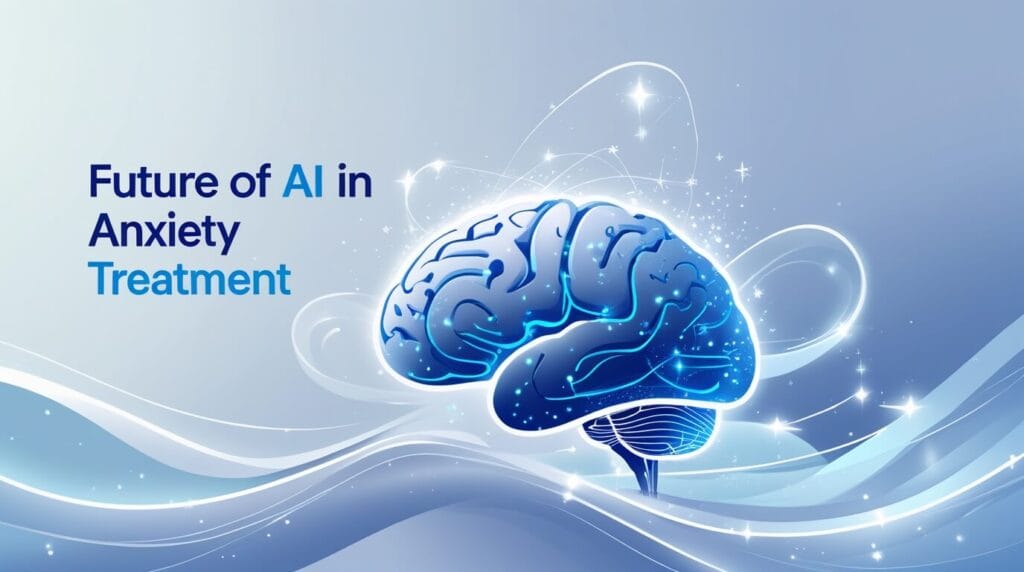
The landscape of how AI chatbots help with anxiety is evolving rapidly, with exciting developments that promise even more effective and personalized mental health support. Based on emerging trends and research directions, the future looks incredibly promising for digital mental health interventions.
Advanced Personalization and Machine Learning The next generation of AI anxiety chatbots will offer unprecedented personalization capabilities. Current systems already learn from individual interactions, but future platforms will integrate biometric data, sleep patterns, and even voice analysis to provide highly tailored support. Imagine AI mental health chatbots that recognize anxiety in your voice patterns or suggest coping techniques based on your heart rate variability data.
Research is advancing toward AI chatbots for anxiety relief that can predict anxiety episodes before they occur, providing preventive interventions based on pattern recognition. These systems will learn your unique anxiety signatures – specific thoughts, behaviors, or situations that typically precede anxious episodes – and proactively offer support strategies.
Integration with Wearable Technology and IoT The future of AI anxiety support systems will likely integrate seamlessly with wearable devices and smart home technology. Your smartwatch could detect physiological signs of anxiety and automatically connect you with appropriate AI support. Smart speakers might offer guided breathing exercises when they detect stress patterns in your voice or daily routines.
This integration will make AI tools for anxiety management even more accessible and responsive to real-time needs. Instead of remembering to reach out for support, the technology will proactively offer assistance based on objective indicators of stress and anxiety.
Virtual Reality and Immersive Experiences Emerging technologies are combining AI chatbots for anxiety disorders with virtual reality environments to create immersive therapeutic experiences. These platforms can provide exposure therapy in controlled virtual settings while AI guides process the experience and provide real-time support.
Virtual reality enhanced AI mental health chatbots could offer meditation experiences, safe spaces for processing trauma, or practice environments for social anxiety. The combination of immersive technology with intelligent conversation creates possibilities for therapeutic interventions that weren’t previously possible.
Collaborative AI and Human Therapist Models The future likely holds sophisticated collaboration between AI anxiety chatbots and human mental health professionals. AI systems will serve as therapeutic assistants, helping human therapists track client progress, identify patterns, and suggest intervention strategies based on continuous data analysis.
These collaborative models will enhance how AI chatbots help with anxiety by maintaining the irreplaceable human elements of therapy while leveraging AI’s capabilities for data processing, pattern recognition, and 24/7 availability.
Regulatory Developments and Clinical Integration As evidence for the effectiveness of AI anxiety support grows, we’re likely to see increased regulatory oversight and clinical integration. This will lead to more standardized, clinically-validated platforms and potentially insurance coverage for digital mental health interventions.
The development of clinical guidelines for AI chatbots for anxiety relief will help both providers and users understand how to most effectively integrate these tools into comprehensive mental health care plans.
Making an Informed Decision About AI Anxiety Support
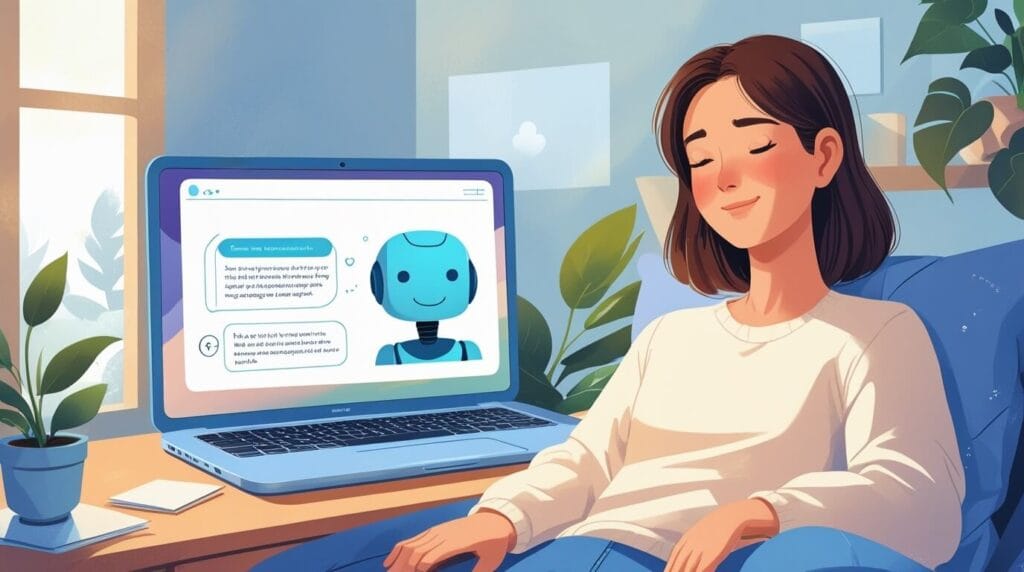
After exploring the comprehensive landscape of how AI chatbots help with anxiety, it’s clear that these digital tools represent a significant advancement in accessible mental health support. However, like any mental health intervention, their effectiveness depends largely on appropriate use, realistic expectations, and integration with broader wellness strategies.
The evidence consistently shows that AI anxiety chatbots can provide meaningful support for individuals dealing with mild to moderate anxiety symptoms. They excel at providing immediate access to coping techniques, offering judgment-free spaces for processing anxious thoughts, and maintaining consistent availability when human support isn’t accessible. The 24/7 nature of AI mental health chatbots addresses a critical gap in traditional mental health care, offering support during those crucial moments when anxiety strikes outside of business hours.
Yet it’s equally important to understand that AI chatbots for anxiety relief are tools in a broader mental health toolkit, not standalone solutions for serious anxiety disorders. They work best when combined with other wellness strategies – whether that’s professional therapy, medication, lifestyle changes, or social support. The most successful users I’ve encountered treat AI anxiety support systems as digital wellness companions that complement rather than replace human connection and professional care.
The personalization capabilities of modern AI tools for anxiety management continue to improve, offering increasingly tailored support that adapts to individual needs and preferences. This evolution suggests that digital mental health support will become even more effective and user-friendly over time, potentially reaching populations who might not otherwise access mental health resources.
If you’re considering whether AI chatbots help with anxiety in ways that might benefit your specific situation, start with realistic expectations and clear boundaries. Explore reputable platforms, maintain other forms of support, and don’t hesitate to seek professional help if your anxiety significantly impacts your daily functioning. Remember that taking care of your mental health is a journey, and digital tools can be valuable companions along the way.
The future of AI mental health chatbots looks incredibly promising, with advances in personalization, integration with other technologies, and clinical validation. As these tools continue evolving, they’ll likely become even more effective at providing accessible, immediate, and personalized anxiety support. Whether you’re dealing with occasional stress or more persistent anxiety patterns, AI chatbots for anxiety disorders offer a new avenue for support that’s worth exploring as part of a comprehensive approach to mental wellness.

